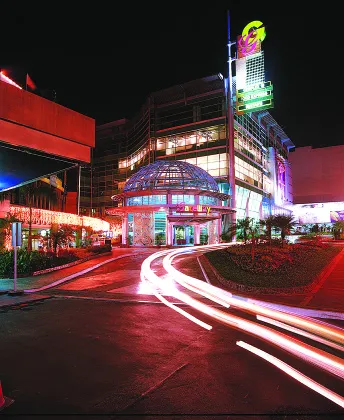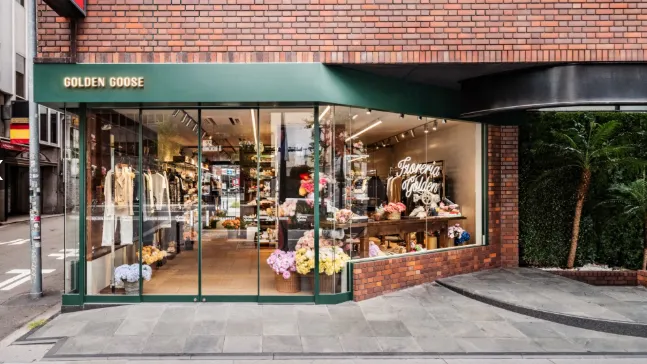
IT in Retail: Empowering the business with timely information
The Araneta Group tells Tina Dumlao it is poised for expansion and growth with a fully modern ERP system while FoodAsia says its ERP system helps with inventory control and supply chain management.
With accelerated growth in recent years, many retail companies in the Philippines now find that they have outgrown their basic homegrown systems for inventory management, financial controls and even handling of personnel’s pay checks. Increasingly, they are looking to third party information technology companies to provide a wide array of technology solutions that suit their needs, whether it is to improve their existing systems or to prepare for growth and expansion, locally and overseas.
These advanced IT systems sometimes come with a steep price tag, but then retail companies with an eye on improving their competitive advantage know that it is an investment they have to make.
Furthermore, Philippine companies are well aware that competition will intensify with the integration of the economies of the member-states of the Association of Southeast Asian Nations (ASEAN) into a common market.
The Araneta Group is one of the oldest companies in Philippines retail sector, having opened the country’s first air-conditioned shopping mall – Ali Mall – in 1976. To support its major plan for growth, the Group is investing in a big way in technology.
Last month, the Araneta Group went live with an enterprise resource planning software system from SAP worth over P100 million (US$2.2 million).
In a statement, the Araneta Group says it is migrating from fragmented legacy systems to the SAP system to create a more efficient work environment for all employees. The SAP solution streamlines business processes and reduces multiple sources of information by implementing a centralised system, with data readily available in real time. It also enables the company to link key business functions and gain competitive advantage with better workflow systems.
More importantly, the SAP system allows the management to make relevant business decisions and more aggressive strategic planning based on on-time and accurate reports.
The Araneta Group says the investment in SAP promises to significantly increase the efficiency of the finance, procurement and inventory, operations, engineering and maintenance because of a centralised data infrastructure.
This improves financial reporting and analysis by accurately capturing and recording all cost and revenue information across several revenue streams. The new system also improves business processes by reducing manual data input and minimising the chances for errors.
Cecile Marvilla, vice president for marketing of the Araneta Group of Companies, says in an interview that the Group had shopped around for suitable technology solutions and found what it needed in the SAP system.
Aggressive expansion and growth
While enterprise resource planning (ERP) systems are not new, Marvilla says that it was only recently that the group appreciated the importance of moving away from legacy systems because of the rapid growth of the company.
“Before SAP, information was all over the place. We would input figures on Excel manually and the [business] units did their own accounting. That worked for a while but not now that we are aggressively expanding. We need to make decisions faster and management cannot do that without having the right information from all of the units,” explains Marvilla. “We were just getting too big and the old systems just won’t do anymore.”
Marvilla says the Araneta Group is confident of the SAP system as it is already being used by many other retail companies locally and abroad and is proven.
“With a fully modern ERP system, the Araneta Group is poised for growth,” the Group said.
Araneta’s investment in the SAP system supports its “Extreme Transformation” initiative, which calls for the diversification of revenue streams and new positioning of the Araneta Center as a “premiere lifestyle and entertainment destination, business hub and residential community.”
Several expansion projects are underway as part of this corporate initiative. The Group, for example, is in the middle of construction of 18 residential high-rise towers that will have 9,000 condominium units and 30,000sqm of prime ground floor retail spaces linked to the Gateway Mall and mass transit systems.
It is also building the Novotel Manila Araneta Center, the 32-level Gateway Tower and renovating the Smart Araneta Coliseum, which comprises a parking facility for 2,000 vehicles, first-class food and entertainment amenities and an exclusive membership club called the Owner’s Circle.
Aside from these, the Araneta Group is also investing in the expansion of its food retail units, including Dairy Queen, Pizza Hut and Taco Bell franchises.
Marvilla says the SAP system represents the Araneta Group’s first major purchase of a solutions package in more than 40 years of operation. It is expected to handle the significant increase in financial transactions from the different business units once all the construction projects are complete.
Another group that is relying on the SAP ERP system is FoodAsia Corp., a Philippine-based, multi-brand café and restaurant operator and retailer. For FoodAsia, the SAP ERP system is the backbone of its technology infrastructure.
FoodAsia CEO Richard V. Sanz says that with more than 250 retail outlets in the Philippines scattered across some 7,100 islands, the company has to find a way to use technology to automate and monitor operations.
The SAP system will also be helpful as FoodAsia, which operates such brands as Bibingkinitan, Bar-B-King and OVN, expands beyond the Philippines. FoodAsia is starting its international expansion by establishing multiple stores in Dubai, United Arab Emirates, this year.
The SAP system at FoodAsia provides the company’s management with real time information on the levels of inventory and sales in each of the stores. This information helps greatly with inventory control and supply chain management, as well as gives management a better picture of operations. For example, through the system, the management will know which branches are doing better than others and whether the under-performing stores should be relocated or closed.
Sanz explains that previously, all of FoodAsia’s retail stores communicate with the SAP server in two ways.
For smaller stores with no Internet connection due to space limitations, information is sent via text message. All inventory entries and recording, as well as sales data are sent via SMS through the local service provider and received by an SMS router, which is interfaced to the company’s SAP database server.
Another way to send information is through the company’s internal website portal, where the orders, inventory and other vital store information are entered. Just like the SMS server, the website is directly connected to the SAP database server.
“This solution is linked to our Supply Chain Department and allows us to monitor each store in real time in terms of inventory levels, daily time recording, and many more,” says Sanz.
But while the system has been effective, technological advances warranted a change in the company’s systems.
“Due to the emergence of cost-effective smartphones, we retired the SMS method due to its susceptibility to user errors, and will be migrating soon to smartphone-based applications, which have a much more user-friendly graphical user interface,” says Sanz.
Hardware solutions, meanwhile, include routers, fibre optic leased lines for the factories and commissaries, and web-accessible CCTV’s, smartphones, and tablets for the stores.
Sanz says these hardware solutions are an integral part of FoodAsia’s continuing investment in technology to streamline operations, primarily through the efficient collection of information from all parts of the business – from manufacturing to retail operations – to enable management to make the right informed decisions.
“We are also in the process of replacing laptops with iPads for easier presentation and accessibility. All roving field managers are issued with Android smartphones that have 3G data connection for email communications with head office managers and for sending store photos and images,” says Sanz.
Companies like FoodAsia and Araneta Group are maintaining their business competitiveness because they are empowered by sophisticated technology that gives management the right information, on time, all the time.



















 Advertise
Advertise






